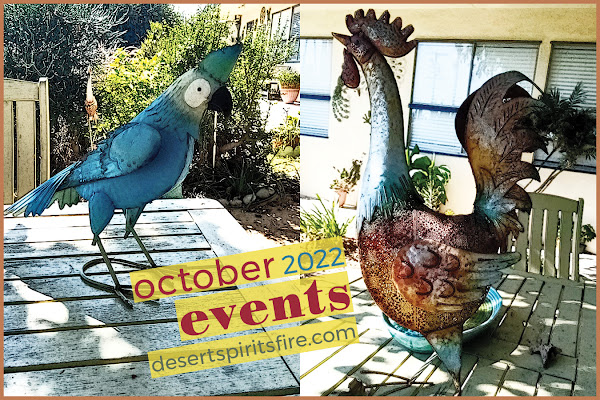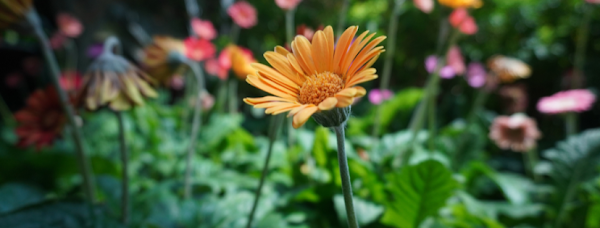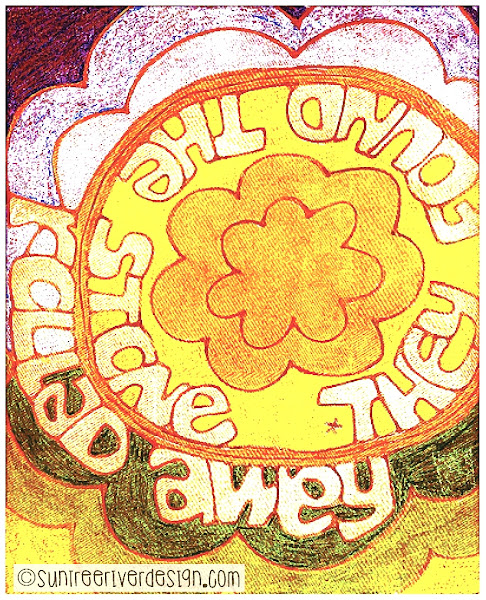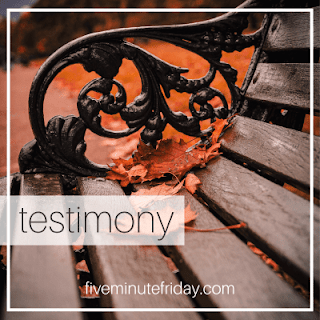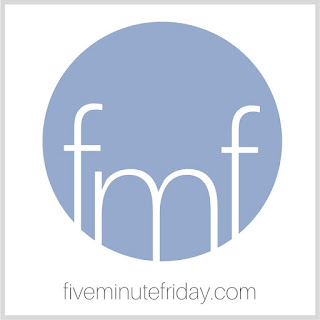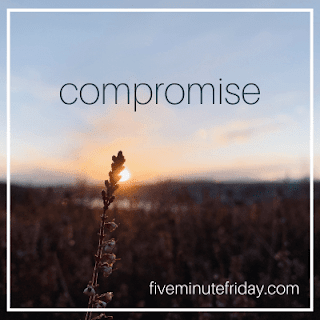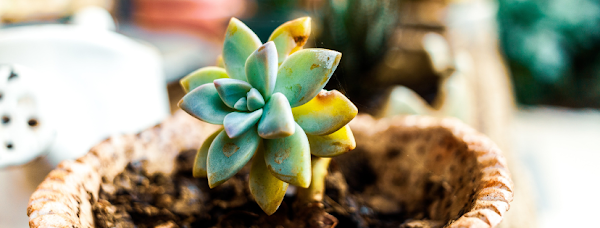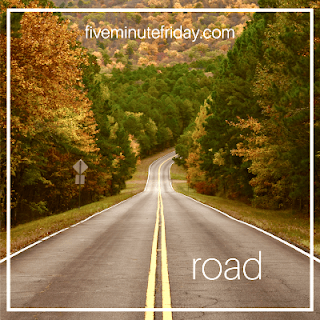• Early October Parking Lot Sale featured plants, pictures, books, clothes, kitchen miscellany and other fun stuff. I did well with a large cow painting, milk pitcher, smallish glazed bowl, large round wicker storage basket, small wicker wall heart, coral skinny denim jeans, a book I thought was YA (but turned out not to be so I don't know if I'll read it), plus cat food and dog food at close to steal prices. • Critter Blessing turned out mostly virtual again this year: old picture of Roxy who aways gets into weird poses when she knows I want a pic; new one of Sweety; another quick shot of Thomas Jefferson/TJ. • Twin Valley Fall Festival was super fun. Amazing catered tacos, music, games, craft displays, networking, and more. Here's some of the green on campus. The site is Los Angeles city, yet quite rural and zoned for equines. • Twin Valleys Fall Festival quilts and HOME sign. They also had knitting and crocheting.
Monday, October 31, 2022
October 2022
• Early October Parking Lot Sale featured plants, pictures, books, clothes, kitchen miscellany and other fun stuff. I did well with a large cow painting, milk pitcher, smallish glazed bowl, large round wicker storage basket, small wicker wall heart, coral skinny denim jeans, a book I thought was YA (but turned out not to be so I don't know if I'll read it), plus cat food and dog food at close to steal prices. • Critter Blessing turned out mostly virtual again this year: old picture of Roxy who aways gets into weird poses when she knows I want a pic; new one of Sweety; another quick shot of Thomas Jefferson/TJ. • Twin Valley Fall Festival was super fun. Amazing catered tacos, music, games, craft displays, networking, and more. Here's some of the green on campus. The site is Los Angeles city, yet quite rural and zoned for equines. • Twin Valleys Fall Festival quilts and HOME sign. They also had knitting and crocheting.
Friday, October 28, 2022
Five Minute Friday :: While
• Five Minute Friday :: While Linkup
Sit a while and we'll while away some time. I'm not sure of the formal, technical meaning of while, but for me the noun "while" connotes an unspecified length of time that might or might not depend on circumstances; whereas "while" the verb is casual, unstructured, without stated purpose. Both noun and verb feel fuzzy around the edges.
For the most part I consider whiling away time an unplanned, almost random activity with no real expectations. But we know God never wastes any experiences; God makes best use of every time, all the time. One of the best examples is Holy Saturday, the day after Jesus' crucifixion when from outward appearances nothing happens, yet from God's reality, everything does and leads into the fullness of redemption on the day of resurrection.
Here in Luke's gospel we have an example of close to unintentional staying a while to while away some hours—probably until dawn, since nights could get scary and dangerous in that time and place. Yet that while turned into the intimacy and nurture of a shared meal. The encounter became a reminder that Jesus, born in Little Town of House of Bread, is Lord who provides the loaf, the sustenance. This Jesus, who often comes to us as a stranger, after a while often becomes someone in whom we recognize God's presence before they leave.
Fuzzy around the edges with room for God to make a way? Yes! Purposeless whiling for a while?! I'd say not! Amen? Amen!
# # #
Sit a while and we'll while away some time. I'm not sure of the formal, technical meaning of while, but for me the noun "while" connotes an unspecified length of time that might or might not depend on circumstances; whereas "while" the verb is casual, unstructured, without stated purpose. Both noun and verb feel fuzzy around the edges.
They came to the edge of the village where they were headed. The stranger acted as if he were going on but they pressed him: "Stay a while and have supper with us. It's nearly evening; the day is done." So he went in with them.
And he sat down at the table with them. Taking the bread, he blessed and broke and gave it to them. At that moment, open-eyed, wide-eyed, they recognized him. And then he disappeared.
Then the two went over everything that happened on the road and how they recognized him when he broke the bread. Luke 24:28-31, 35
For the most part I consider whiling away time an unplanned, almost random activity with no real expectations. But we know God never wastes any experiences; God makes best use of every time, all the time. One of the best examples is Holy Saturday, the day after Jesus' crucifixion when from outward appearances nothing happens, yet from God's reality, everything does and leads into the fullness of redemption on the day of resurrection.
Here in Luke's gospel we have an example of close to unintentional staying a while to while away some hours—probably until dawn, since nights could get scary and dangerous in that time and place. Yet that while turned into the intimacy and nurture of a shared meal. The encounter became a reminder that Jesus, born in Little Town of House of Bread, is Lord who provides the loaf, the sustenance. This Jesus, who often comes to us as a stranger, after a while often becomes someone in whom we recognize God's presence before they leave.
Fuzzy around the edges with room for God to make a way? Yes! Purposeless whiling for a while?! I'd say not! Amen? Amen!
Friday, October 21, 2022
Five Minute Friday :: Testimony
• Five Minute Friday :: Testimony Linkup
The apostle Paul called himself an apostle because he had seen the risen Christ! As the Acts of the Apostles make clear, someone who has seen the risen Christ is an apostle of Jesus Christ like the original twelve! For Paul the gospel is death and resurrection. Throughout the epistles or letters he sent to local assemblies he founded or visited, Paul shared his testimony of meeting the living Christ along with more formal theology that grew from his experiences. Paul's words would resonate through the centuries, would lead to others knowing Christ, and in turn bearing their own testimonies in word and action to a world in pain, a world enmeshed in death, a world that desperately needs hope. More often than not (almost never!) we don't encounter the whole entire world, but rather one or two individuals who may be neighbors, random strangers, coworkers, or someone else God providentially has placed in your life, you in theirs.
In my tradition, when we gather to celebrate Eucharist, together we proclaim the mystery of faith:
Christ has died;
Christ is risen;
Christ will come again.
Death. Resurrection. New Creation.
The broken bread and poured out wine testify to the presence of the risen Savior. The welcome table itself testifies to the presence of the Lord of life within the assembly.
Our actions announce the reign of life despite the reality of death, but we often need to tell the story of Jesus in our life. We frequently need to describe the transformation that happens when we meet the risen Christ and become easter people. Why did you notice me? Why were you kind to me? Why did you help at the toy drive? Why do you always attend the reach out-gather in dinner? They've seen it; now you explain it!
The world needs all of our apostolic (yes, we're all apostles, because we've witnessed death and resurrection) testimonies, yet more often we get to share it with one or two residents of this planet at a time—definitely not in ways that trend worldwide. When someone asks you to bear your testimony how do you begin?
# # #
1 Early on the first day of the week, while it was still dark, Mary Magdalene came to the tomb and found that the stone had been rolled away from the tomb. John 20
21 "So one of the men who have accompanied us during all the time that the Lord Jesus went in and out among us,
22 beginning from the baptism of John until the day when he was taken up from us—
one of these must become a witness with us to his resurrection."
26 And they cast lots for them, and the lot fell on Matthias,
and he was added to the eleven apostles. Acts 1
The apostle Paul called himself an apostle because he had seen the risen Christ! As the Acts of the Apostles make clear, someone who has seen the risen Christ is an apostle of Jesus Christ like the original twelve! For Paul the gospel is death and resurrection. Throughout the epistles or letters he sent to local assemblies he founded or visited, Paul shared his testimony of meeting the living Christ along with more formal theology that grew from his experiences. Paul's words would resonate through the centuries, would lead to others knowing Christ, and in turn bearing their own testimonies in word and action to a world in pain, a world enmeshed in death, a world that desperately needs hope. More often than not (almost never!) we don't encounter the whole entire world, but rather one or two individuals who may be neighbors, random strangers, coworkers, or someone else God providentially has placed in your life, you in theirs.
In my tradition, when we gather to celebrate Eucharist, together we proclaim the mystery of faith:
Christ has died;
Christ is risen;
Christ will come again.
Death. Resurrection. New Creation.
The broken bread and poured out wine testify to the presence of the risen Savior. The welcome table itself testifies to the presence of the Lord of life within the assembly.
Our actions announce the reign of life despite the reality of death, but we often need to tell the story of Jesus in our life. We frequently need to describe the transformation that happens when we meet the risen Christ and become easter people. Why did you notice me? Why were you kind to me? Why did you help at the toy drive? Why do you always attend the reach out-gather in dinner? They've seen it; now you explain it!
The world needs all of our apostolic (yes, we're all apostles, because we've witnessed death and resurrection) testimonies, yet more often we get to share it with one or two residents of this planet at a time—definitely not in ways that trend worldwide. When someone asks you to bear your testimony how do you begin?
tags, topics
acts,
Five Minute Friday,
john,
new creation,
paul,
st john
Saturday, October 15, 2022
Five Minute Friday :: Compromise
• Five Minute Friday :: Compromise Linkup
It's hybrid! It's fusion! It's a gift of compromise!
In a world that's becoming even flatter than Thomas Friedman could have imagined, almost everyone everywhere needs to compromise on almost everything, but vittles, cuisine, mealtime probably are the most fun and interesting and also endlessly challenging when people from different cultures or simply different preferences get together for a quick bite or an elegant repast.
Whether they settle inland or near an international border, immigrants gift a place with ingredients and recipes from their homeland. You easily can discover what sections of which major cities have neighborhoods named after relative newcomers. Los Angeles has Chinatown, Little Tehran, Little Tokyo, and Koreatown, where restaurants and markets offer food that reflect the residents' origins. Cali-Mex has become southern California's stereotypical blended cuisine, yet this most diverse ever settlement has residents from every South and Central American country, with all the varieties of menus and ingredients that implies. When inputs to recreate or duplicate a recipe are too rare or too costly, compromise often becomes necessary rather than optional.
Food, language, and overall culture around here is multi-ethnic; especially Latin American and also Russian, Armenian, Korean, Vietnamese, Thai… it may not be quite in the "compromise" category, yet *even* local national fast food outlets almost always offer agua fresca and horchata at their drink dispensers—and, of course, so do fast casual along with the plethora of food trucks.
But that's not quite the compromise I've been thinking of. Compromise especially happens when you're close to a port of entry with constant movement between countries; familiar dishes get changed due to some ingredients being unavailable, sometimes because others might blend in or add an interesting taste—those compromises almost always turn out well. Regarding ingredients, regional and indigenous specialties all began because of local and seasonal produce. When fruits and veggies grown outside the region started to be hauled and sometimes flown into town, people had more opportunities to duplicate their faves, yet local and seasonal always is better in almost every way.
In addition to compromises based on ingredients, family and individual favorites get tweaked because someone doesn't care for or would rather not try a certain spice or flavor, yet they're excited to try compromises that actually end up creating a new dish (that's sometimes so different it needs a new name).
These renewed, re-imagined dishes are hybrid. They're fusion! They're the happy results of compromise! Someone in the Home Country – a.k.a. "Old Country" – might not quite recognize or call a dish by a name they already know, but like blends of country and jazz, mixes of rock and blues, new menu items assume a life and a legitimacy all their own.
What creatively compromised, newly named main dishes and side dishes will we enjoy in the near and distant future at a nearby café? What new cuisine do you expect to appear on a bill of fare and on a table in your 'hood?
Friday, October 07, 2022
Five Minute Friday :: Become
• Five Minute Friday :: Become Linkup
This week's become prompt reminded me of God rebuilding the ruins of Jerusalem with help from the leadership of Ezra and Nehemiah. You may know about the Babylonian siege of the city, destruction of the temple, deportation of many prominent people to Babylon, and eventual return of some exiles to Judah.
God's people Judah had to rebuild structures and infrastructure; they had to restore almost everything connected to economic, political, and civic life. They needed to reinstate public worship. In recent years several books related to Ezra and Nehemiah in the Old Testament have been published.
Restore, reinstate, rebuild? Doesn't that sound like right now, two and one half years into a global pandemic? Even people Covid has minimally disoriented still need to explore and trust what and how God will have them become in themselves and become for others.
I especially appreciate Barry Pearman's Broken to Build (I read it a couple years before Covid snuck into the world and then engulfed it) because of practical ways it parallels Nehemiah's narrative with our need to move forward after loss and disappointment—and because it's short enough to easily start and finish. Here's my blog review.
Mental Health Pastor Barry explains, "…we are in recovery mode. We are building and growing a life out of the rubble of what was left behind. In the choking dust of rubble we find that this is no fairy tale. The biblical Book of Nehemiah is a love story. God is in love with the people of Jerusalem and sees them broken, shamed and without dignity." … "The big idea is that recovery/life takes place in a relational context."
"Become" is a helpful and holy consideration at any time, but as we gradually ease out of Covidtide into new activities, new or renewed employment, restored or new relationships, absolutely everyone will become other than who they had been to a far more radical extent than typically would happen so soon.
Similar to God's people who returned home to the Land of Promise in literal ruins, we feel as if we need to recover a life of participation from rubble and fragments; often we can't clearly remember what a full life was like.
We are who we've become so far, both up to the dawn of Covid and in our struggles through the worst of the pandemic; God has dreams for our future becoming. And remember Barry's reminder, The big idea is that recovery/life takes place in a relational context. Although we've discovered real relating can happen on zoom, let's celebrate and enjoy meeting face to face. Because now we can!
# # #
PS A super shoutout to Kate for the irresistible succulent in process of becoming where it's been planted. Last I knew, she finds most pictures for FMF on unsplash.
This week's become prompt reminded me of God rebuilding the ruins of Jerusalem with help from the leadership of Ezra and Nehemiah. You may know about the Babylonian siege of the city, destruction of the temple, deportation of many prominent people to Babylon, and eventual return of some exiles to Judah.
God's people Judah had to rebuild structures and infrastructure; they had to restore almost everything connected to economic, political, and civic life. They needed to reinstate public worship. In recent years several books related to Ezra and Nehemiah in the Old Testament have been published.
Restore, reinstate, rebuild? Doesn't that sound like right now, two and one half years into a global pandemic? Even people Covid has minimally disoriented still need to explore and trust what and how God will have them become in themselves and become for others.
I especially appreciate Barry Pearman's Broken to Build (I read it a couple years before Covid snuck into the world and then engulfed it) because of practical ways it parallels Nehemiah's narrative with our need to move forward after loss and disappointment—and because it's short enough to easily start and finish. Here's my blog review.
Mental Health Pastor Barry explains, "…we are in recovery mode. We are building and growing a life out of the rubble of what was left behind. In the choking dust of rubble we find that this is no fairy tale. The biblical Book of Nehemiah is a love story. God is in love with the people of Jerusalem and sees them broken, shamed and without dignity." … "The big idea is that recovery/life takes place in a relational context."
"Become" is a helpful and holy consideration at any time, but as we gradually ease out of Covidtide into new activities, new or renewed employment, restored or new relationships, absolutely everyone will become other than who they had been to a far more radical extent than typically would happen so soon.
Similar to God's people who returned home to the Land of Promise in literal ruins, we feel as if we need to recover a life of participation from rubble and fragments; often we can't clearly remember what a full life was like.
We are who we've become so far, both up to the dawn of Covid and in our struggles through the worst of the pandemic; God has dreams for our future becoming. And remember Barry's reminder, The big idea is that recovery/life takes place in a relational context. Although we've discovered real relating can happen on zoom, let's celebrate and enjoy meeting face to face. Because now we can!
PS A super shoutout to Kate for the irresistible succulent in process of becoming where it's been planted. Last I knew, she finds most pictures for FMF on unsplash.
Tuesday, October 04, 2022
Five Minute Friday :: Road
• Five Minute Friday :: Road Linkup
I've long loved songs about home:
• Daughtry, Home
• Bon Jovi, Who Says You Can't Go Home Again?
• Ohana Bam, All Roads Lead Home
• Phillip Phillips, Home
• Al Stewart, Time Passages—"Buy me a ticket on the last train home tonight."
My header art is the beach house I visited a few times many summers ago. Although something very urban, probably inner-city would be my preferred long-term dwelling place, the frame house where you stepped out the door onto the sand symbolizes at home with myself and with what I imagined I'd be doing a whole lot of my life.
Without a doubt, you can't be home with yourself if you don't have at least a small tribe, at least the semblance of a village. But equally, finding the intersection of your passions, gifts, skills, and (yes, per the late Frederick Buechner) the world's needs is essential for anyone's overall well-being. I find Buechner's belief our deep gladness might meet the world's deep needs a bit over the top idealistic, so in general I prefer to paraphrase Howard Thurman, "Don't ask what the world needs; ask what brings you to life, because the world needs people who are fully alive."
Three summers in a row I spent a week at the beach house friends rented every year and always generously invited many others to join them. Every year I drove back to the city Sunday afternoon. As fun as the beach week was, my anticipation on the road back was even better!
I spent Monday with the usual grocery restocking, laundry, haircut, getting reacquainted with neighbors and delighting again in the restless urban commotion I'd fallen in love with as a little kid. I gloried in reclaiming the noisiness and the needs that had led me to dedicate my life to beautifying the city.
After Monday came Tuesday, Wednesday, Thursday—final preparation for the annual two-week long community event the church sponsored to meet some neighborhood needs, advertise our congregation as a welcome place, and help our ongoing discernment about what we could do more of and do better. Between regular season programming and our summer special, I'd found my jam. In terms of this week's prompt, neighborhood ministry was the road I'd be walking.
At my current crisis point (remember, the pictogram for crisis illustrates both danger and opportunity), I've kept looking back and wondering why that road never continued. I knew about detours and dead ends…who doesn't? I also knew and still know many urban, rural, and suburban churches do a lot to engage the geographical area (parish, ward, whatever terminology works for you) surrounding their campus with activities others can't or simply don't provide.
At my current crisis point I want to get back on the street evangelism / community outreach road. I long to find the road home again. I need to rediscover and walk that road.
# # #
"Traveler, there is no road, the road is made by walking."
"Caminante, no hay camino, se hace camino al andar." Antonio Machado, Campos de Castilla
I've long loved songs about home:
• Daughtry, Home
• Bon Jovi, Who Says You Can't Go Home Again?
• Ohana Bam, All Roads Lead Home
• Phillip Phillips, Home
• Al Stewart, Time Passages—"Buy me a ticket on the last train home tonight."
My header art is the beach house I visited a few times many summers ago. Although something very urban, probably inner-city would be my preferred long-term dwelling place, the frame house where you stepped out the door onto the sand symbolizes at home with myself and with what I imagined I'd be doing a whole lot of my life.
Without a doubt, you can't be home with yourself if you don't have at least a small tribe, at least the semblance of a village. But equally, finding the intersection of your passions, gifts, skills, and (yes, per the late Frederick Buechner) the world's needs is essential for anyone's overall well-being. I find Buechner's belief our deep gladness might meet the world's deep needs a bit over the top idealistic, so in general I prefer to paraphrase Howard Thurman, "Don't ask what the world needs; ask what brings you to life, because the world needs people who are fully alive."
Three summers in a row I spent a week at the beach house friends rented every year and always generously invited many others to join them. Every year I drove back to the city Sunday afternoon. As fun as the beach week was, my anticipation on the road back was even better!
I spent Monday with the usual grocery restocking, laundry, haircut, getting reacquainted with neighbors and delighting again in the restless urban commotion I'd fallen in love with as a little kid. I gloried in reclaiming the noisiness and the needs that had led me to dedicate my life to beautifying the city.
After Monday came Tuesday, Wednesday, Thursday—final preparation for the annual two-week long community event the church sponsored to meet some neighborhood needs, advertise our congregation as a welcome place, and help our ongoing discernment about what we could do more of and do better. Between regular season programming and our summer special, I'd found my jam. In terms of this week's prompt, neighborhood ministry was the road I'd be walking.
At my current crisis point (remember, the pictogram for crisis illustrates both danger and opportunity), I've kept looking back and wondering why that road never continued. I knew about detours and dead ends…who doesn't? I also knew and still know many urban, rural, and suburban churches do a lot to engage the geographical area (parish, ward, whatever terminology works for you) surrounding their campus with activities others can't or simply don't provide.
At my current crisis point I want to get back on the street evangelism / community outreach road. I long to find the road home again. I need to rediscover and walk that road.
Subscribe to:
Posts (Atom)

